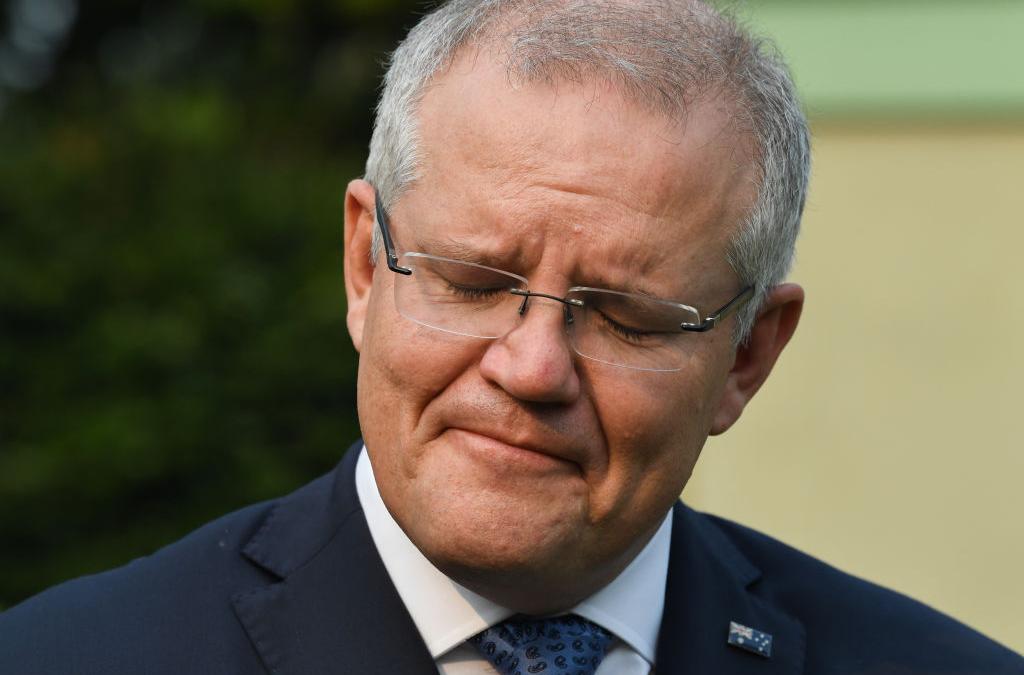
This month, the NSW Government lifted the last of its lockout laws after seven years. I’ve already had a whinge about how it’s not a move that’s designed to fix the damage.
But on the other hand, if you’d told me this time last year that I was going to hear a conservative NSW Government MP say “it’s time to enhance our vibrant nightlife, arts and culture scenes”, my eyebrows would have jumped off my face.
Likewise, if you’d told me that ScoMo was about to spend 130 billion extra dollars on unemployment payments I would have laughed, and if you’d told me that Peter Dutton would allow a group of people awaiting asylum to go about their lives freely in the community, my jaw would have dropped.
COVID has had some weird side effects on Australian politics. Leaders have, remarkably, been agreeing on some of the issues that were once considered partisan. For conservative governments, the justification has mostly been economic.
Lifting the lockout laws was about “reinvigorating the night time economy”. The huge JobSeeker/JobKeeper package was designed to “keep the economy functioning as much as possible”. [Although it’s rolling WAY, way back.] And Peter Dutton justified his massive backflip on refugees by saying: “It’s cheaper for people to be in the community than it is to be at a hotel or for us to be paying for them to be in detention”.
On one hand, I think making humanitarian decisions on purely economic grounds can be pretty gross. Imagine the headlines if a toddler went missing in the bush, and the family was told it “wasn’t cost effective” to mount a search? I feel the same sense of ickiness around a lot of these conversations.
But I also see an opportunity.
What if this moment is a chance to change the stereotypes of Australian politics? Right now, there’s an archetype of the ‘bleeding heart’ left and the ‘economically sensible’ right. But if the last year has proved anything, it’s that ‘ethics and culture’ is not the opposite of ‘business and economy’. You can create policy that has good outcomes on a whole range of fronts – economic and cultural, humanitarian and financial.
So if “economic value” is the most important metric for governments right now, great! That means there’s plenty of things that both sides of politics should be agreeing on – like the following “economically sensible” policies:
Announce A Carbon Emissions Target
There is plenty of research on how badly Australia’s economy is going to get fucked up by climate change. Studies exist on everything from house prices to crop yields, tourism and health. A recent study put the total bill at $1.19 trillion by 2050 – and that still doesn’t account for extreme weather events like bushfires. Right now, ScoMo is flopping around deciding whether to set a net zero emissions target. If a pandemic was enough of an emergency to put aside ideology and listen to experts, could the government please do it again?
Close the Gap Already!
In 2014, Reconciliation Australia commissioned massive accounting firm Deloitte to write a report about the economic benefits of closing the gap between Indigenous and non-Indigenous Australians. The current Closing the Gap targets include things like improving education, healthcare and job opportunities, reducing child mortality and extending lifespan. Deloitte found that in a “hypothetical world” where Indigenous Australians had the same outcomes as non-Indigenous Australians, the economy would be $24 billion larger, $11.9 billion extra revenue would be raised by the government, and spending on things like health and welfare would be reduced by $4.7 billion. But as of 2020, Australia had missed or was not on track to hit 5 out of 7 ‘Closing the Gap’ targets.
Invest in Creative Industries
Cultural and creative industries add $111.7 billion to the Australian economy every year, and this was the first and worst hit sector when Covid came along. Last year $250m was pledged by the government to support creative industries – which sounds great until you compare it with the $680m cost of the ‘HomeBuilder’ program which handed out cash for home renovations. We know the federal government’s favourite three words are “jobs, jobs, jobs”, so why ignore the fact that $1 million invested in the entertainment industry produces 9 times more jobs than the same amount invested in construction industries?
To be clear, I know $$$$ is not always the best way to measure value. And when it comes to things like reducing child mortality or saving the planet, I find a dollar figure a bit yuck. But the idea that ‘rational’ economic decisions are at odds with ‘compassionate’ decisions needs to get in the bin. It’s time to throw away the outdated political playbook of ‘bleeding heart left’ vs ‘sensible right’.
2021 is going to be a telltale year for Australian politics. If governments are actually serious about putting economic recovery first and ideology second, then both sides of politics should find themselves agreeing more than usual. And while that’s the case, let’s find the common ground and start running on it.
Sally Coleman is a radio personality, writer and musician. She was previously the host of triple j Breakfast and a member of hip hop duo Coda Conduct, and is currently working on several new projects whilst eating many dirty kebabs. You can find her on Instagram @thesallycoleman and Twitter @sally_coleman_.







